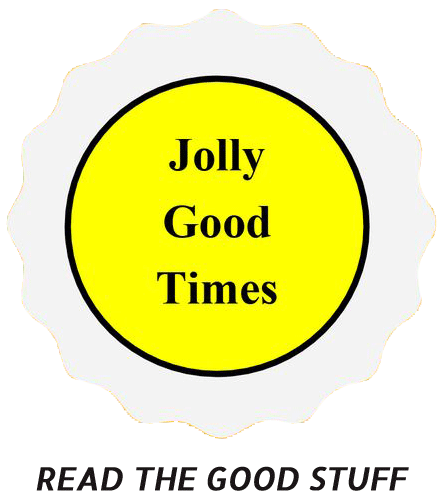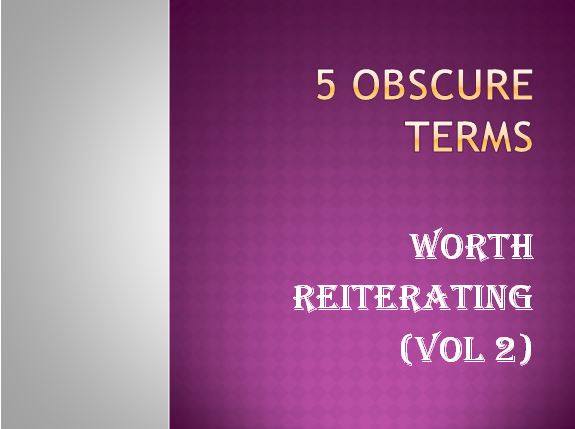"5 Commonly Used and yet Obscure Terms (Vol. 2)"
Post on: July 17, 2018
In our daily lives, we may have come across terms which are good to know but might have overlooked it as we are bombarded with “infobesity” or information overload.
Then again, some of these terms may be worth knowing as it gives a feeling of empowerment in our daily activities; e.g. while meeting our clients. As we unleash such phrases in the course of our conversation, it makes us feel knowledgeable and enhances our self-image. Not forgetting, being likened to a repository of information.
Detractors tell me, “Aiyah!… Such terms are nothing but a piece of cake! We’ve known them since our secondary school days! They aren’t obscure but well-documented terms”. Well, congratulations… Such is the power of the internet and the millennials are barraged with such terms from an early age. I sometimes marvel at the varied subjects the younger generation talk about so effortlessly.
However, for the benefit of those who’ve failed to notice, I have listed 5 obscure terms worth reiterating.
1. Dugnad – This word is difficult to define on paper as it encompasses more than words — it is a cultural resonance that represents a way of life in Norway. It literally means help or support (communal work) in the Norwegian language that dates back centuries. Today, it means voluntary work done in groups, commonly identified with outdoor spring cleaning and gardening in housing co-operatives. Dugnad is deeply ingrained in their culture that in 2004, it was deemed the word of the year in Norway.
2. Avant-garde –The origin of the word is French and it translates to “vanguard” or ‘fore-guard”. It means a group of people who develop new and often very surprising ideas in art, literature, etc. These idea and styles are modern in comparison to the period it took place. The avant-garde also promotes radical social reforms.
3. Maudlin — It means effusively sentimental; feeling sad and sorry for oneself especially after imbibing excessive alcohol (I can’t watch another minute of that overly-sentimental, maudlin soap opera — I better switch the channel).
4. Nouveau riche –Literally, nouveau riche means “newly rich” in French. One who has recently become rich. It is a term, usually derogatory which describes those who acquired wealth within their generation and flaunts it conspicuously. The implication is that being of lower or middle-social class origin, they like to show their wealth publicly hence lacking in subtlety.
5. All-overish: Neither sick nor well; the premonitory symptoms of illness. It is used when one is sitting on the middle ground, between feeling well and unwell. The word’s role of specifically serving a non-specific feeling makes it valuable.
These words may not be heard on a regular basis, however, they never fail to tickle the ear and amuse the mind…
The Jolly Good times hopes these terms come in handy in your everyday usage. If it’s worth knowing, it has to be shared — invite your kakis (buddies) to Like us Facebook.
#JollyGoodTimes #5ObscureTermsWorthReiteratingVol2 #ShajiThomasVarughese
https://www.facebook.com/jollygoodtimes.org
Image: George/JollyGoodTimes; Photo: pixabay.com
Disclaimer:
Jolly Good Times is not responsible for any errors or omissions, or for the results obtained from the use of this information. All information on this site is provided “as is”, with no guarantee of completeness, accuracy, timeliness or of the results obtained from the use of this information…”




